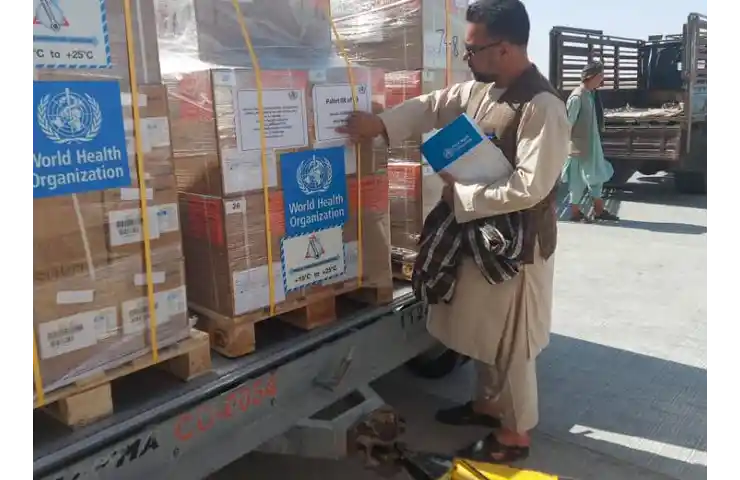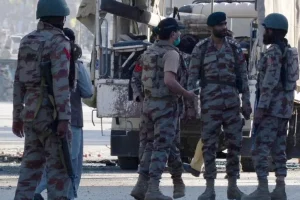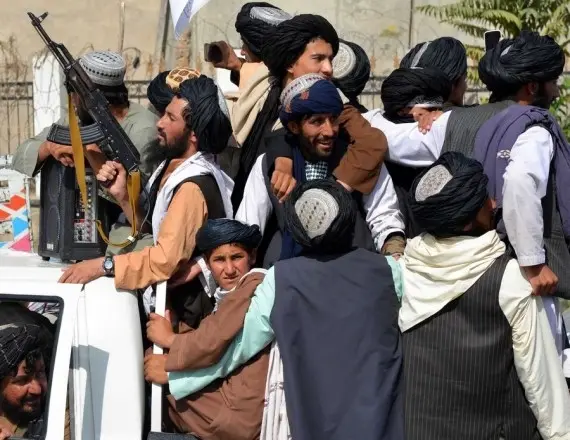The world has collectively pledged over $1.2 billion in humanitarian aid for conflict-torn Afghanistan. This is despite the fact that most world leaders are still sceptical of the Taliban leadership and have not accorded it recognition till now.
The money was raised after the UN intensified efforts to raise emergency funding for the beleaguered Afghan people.
The UNDP recently said that Afghanistan was on the brink of "universal poverty" with as many as 97 per cent of the population on the brink of falling into poverty by next year. The crisis morphed not just due to the conflict but also because the West froze development aid to Afghanistan after the Taliban takeover.
The US alone has frozen nearly $10 billion of Afghan reserves held in US banks. Allies such as the UK Germany also have stopped aid to Afghanistan fearing that such a step would legitimise the Taliban.
However, China and Pakistan are stepping in where the US and its allies hesitate.
China has pledged $31 million in aid to Kabul. This includes food, medicines and coronavirus vaccines. International experts say that China has been supportive of the Taliban takeover and sees an opportunity to exploit the beleaguered country's unexploited mineral reserves. It also seeks to ensure that the Taliban government will keep the Islamic militants at bay from foisting resistance in its Xinjiang region.
Ally and iron brother Pakistan too has sent plane loads of food and medical supplies to the landlocked country. Pakistan is believed to have supported the Taliban over the decades that the US was battling the militants. The Pakistan government, the intelligence and its military feel that they have installed a friendly government in its western neighbour.
The $1.2 billion aid has been in response to a flash appeal by the UN for immediate relief to 11 million people.
Speaking at the high-level conference—the first after the Taliban came to power on August 15, Under-Secretary-General for Humanitarian Affairs and Emergency Relief Coordinator, Martin Griffiths said that more than $1.2 billion was announced by “very generous member states” for the Afghanistan humanitarian crisis.
Addressing the conference, UN Secretary General Antonio Guterres said: “The people of Afghanistan need a lifeline. After decades of war, suffering and insecurity, they face perhaps their most perilous hour. Now is the time for the international community to stand with them. And let us be clear, this conference is not simply about what we will give to the people of Afghanistan. It is about what we owe”.
European countries are planning to provide aid not just to Afghanistan but also its neighbours.
News agency AP reports that German Foreign Minister Heiko Maas has promised to put in 500 million euros ($590 million) for Afghanistan and its neighboring countries. Similarly, Denmark will give $38 million and Norway $11.5 million.
US ambassador to the UN Linda Thomas-Greenfield announced that the US is “committed to providing humanitarian assistance” for and supporting Afghans, and would add $64 million in new assistance for the UN and partner organizations. She said that this would push up American aid for Afghanistan to $330 million in the current fiscal year.
At the same time, realisation is dawning that to help the Afghans, the international community—consisting of donors and the UN agencies—will have to open up a dialogue with the Taliban government. Guterres too acceded that they will have to engage with the Taliban if they have to provide help to the people in Afghanistan. This would also help in addressing other concerns, including terrorism, human rights and the nature of the government, he added.
The UN officials added a word of caution about the $1 billion pledges. They said despite the pledges it is impossible to say how much will actually materialise.




















